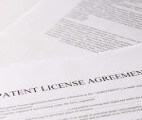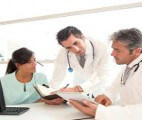If you have an accident abroad – how do you get help to understand the local language?

With our minds turning to summer holidays, the other day we were discussing how people who’ve had medical problems when travelling abroad access translation services for their medical or insurance documents. We were thinking particularly about medical tourism, but also what happens if you’re involved in an accident.
Pre-Covid, medical tourism from the UK (UK residents travelling abroad for medical procedures, including things like cosmetic surgery and non-surgical aesthetic procedures, dental surgery and cataract operations) was growing in popularity. Obviously the pandemic shut that down for a while, but with the NHS struggling, people are starting to travel abroad again for medical reasons.
And of course, accidents or illness can happen anywhere.
So what can you do if you have a problem abroad and need help with translating or interpreting the local language?
What do I do if I have problems after a medical procedure abroad?
According to the British Association of Aesthetic Plastic Surgeons (BAAPS) data shared with ITV (warning, some images included on this page may be disturbing), medical tourism is on the up – with Turkey being a particularly popular destination for cosmetic and dental procedures. However, unfortunately, there is a corresponding increase in the numbers of people needing corrective treatment from the NHS on returning to the UK, and there are some real horror stories out there. We’re not here to dwell on the gory details, but the link above takes you to an ITV news article about what can happen when it goes wrong.
Thinking about surgery abroad – understand the small print
We’re not medical professionals, but from a language point of view, our advice is to make sure you completely understand what you’re signing up for.
There are a great many glossy ads out there, promising you anything from pain-free dental work to a whole new you. Do your research, and look beyond the ads and brochures. There have been complaints to the Advertising Standards Agency (ASA) in the UK about services trivialising the implications of surgery, using high-pressure sales techniques, and misleadingly omitting information.
Read the small print. All of it. If the English translation doesn’t seem very clear or well-written, or you can’t understand it, get a translation of the original language done by a professional translator with medical and/or legal knowledge.
Make sure you understand your consumer and patient rights in the host country before you part with any money.
Need help after an accident abroad?
If you’re involved in an accident abroad, whether or not it was your fault, or if anyone was injured, things can get complicated. Try not to panic, and keep a clear head. The UK Citizens Advice service advises that you should ensure the police are called, and that you get a copy of the police report. If you don’t understand what you are being told, ask for an interpreter. You can contact us for interpreting services, but it may be quicker to ask the police to find one locally.
Citizens Advice also suggests that you:
- make notes about what happened
- get photographs of the accident – including pictures of the number plates of any vehicles involved and their positions
- exchange insurance details
- take the names and addresses of as many witnesses as possible
- don’t admit liability or apologise
If you’ve been unfortunate enough to have been injured, or you need to make a vehicle insurance claim, you’re likely to need translations of relevant documents. In many cases, your insurance company will take care of that, but for your own peace of mind you might want to ensure you get any medical records, police reports etc translated into English.
Translating medical or insurance documents into English
The important point here is to use a translator who has expert knowledge of the subject, as well as the language. After all, if you’re not a medical, insurance or legal professional yourself, would you understand all the technical jargon you’re likely to encounter? It’s the same with a translator. By using a professional translation service like Language Link UK, you can be confident that you’ll be matched with a translator or interpreter who understands the specifics.
Certified translation of documents
In some cases, you may need to get documents legally certified or apostilled, to show that they are genuine, official documents. Different countries have different requirements, so it’s important to work with a translator who understands the regulations both in the UK and in the country where you had the issue. Our translation services are recognised by many governments and authorities, which can simplify the process for you.
The key thing to remember is that you’re not alone. Talking to your insurance company, lawyer, or, in the case of an injury or medical problem, your doctor, as soon as possible is obviously essential. But if you’re having trouble with understanding any of the documents or communications from the country where the trouble happened, we may be able to help.
If you’re not sure whether you need a translator or an interpreter, our recent blog may help.
With 31 years’ experience in the industry, over 5,000 translators native in over 200 languages and dialects, and industry-specific expertise in law, insurance and medicine we’re your go-to service for interpretation services, and translation of foreign language documents relating to medical treatments, injury or accidents. We genuinely care about the outcome for you, promise transparent and competitive pricing, and will always do our best to help.
























